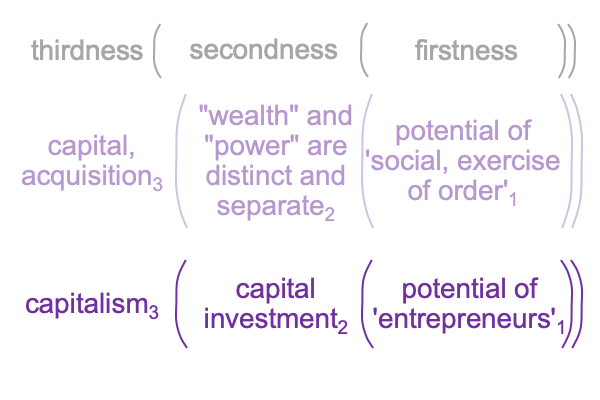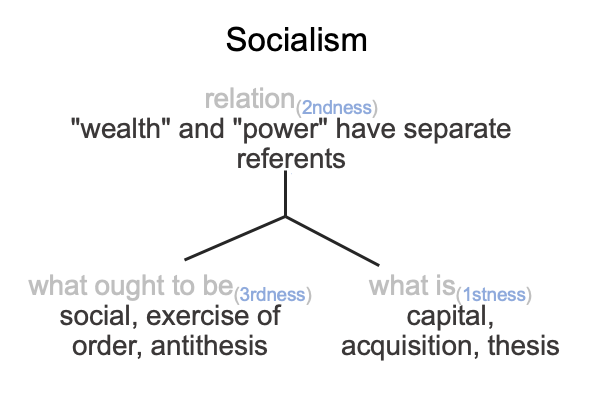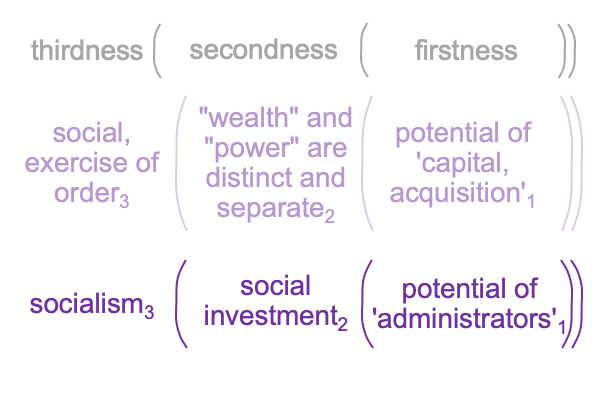0297 This judgment unfolds into the following nested form, on the basis of the assigned categories.

0298 The normal context of capital & acquisition3 brings the actuality of the fact that wealth and power are distinct and separate2 into relation with the potential of ‘social & the exercise of order’1.
0299 Will that do?
Of course not, the normal context of capitalism3 veils the actuality2 of the agreement with a new, unified, term that is all about wealth (not power). What is that term? How about capital investment2?
That is not enough, the potential of ‘social & exercise of order’1 must also be veiled, as ‘something that wealth is not about at all’1. What is capital investment2 all about? Is it1 the potential of ‘entrepreneurial activity’1?
And, who (except for maybe, Adam Smith) would imagine that the potential of ‘entrepreneurs’1 is also the potential of ‘moral sentiments’1?
Does the term, “moral sentiments”, associate to “social, exercise of order”?
Indeed, it does, but the word, “entrepreneur”, does not.
0300 The first permutation yields a category-based nested form that understands capital investment2, as if wealth is a thing itself.
The normal context of capitalism3 brings the actuality of capital investment2 into relation with the potential of ‘entrepreneurs’1.
Is this a noumenon for the modern disciplines of economics and marketing?
0301 What about the second permutation?
Here is a picture of the judgment.

0302 Notice that the categorical assignments for what ought to be and what is are reversed.
The resulting nested form looks very different than the nested form for capitalism.

0303 The normal context of social & the exercise of order3 brings the actuality of the fact that wealth and power are distinct and separate2 into relation with the potential of ‘capital & acquisition’1.
0304 Once again, that will not do.
The actuality2 and the potential1 must be veiled.
The actuality2 must be veiled because there is no returning to [wealth and power] as a single [substance]. Does the term, “social investment2” fulfill that mission.
Plus, the potential1 must be papered over in order to shift attention away from the one possibility1 that underlies socialism3, that is, the potential to control the beast (of capital & acquisition) through the exercise of order1, that is, regulation1.
The result?
The normal context of socialism3 brings the actuality of social investment2 into relation with the potential of ‘administrators’1.
So, I wonder, is this a noumenon for the modern disciplines of the administrative sciences?
